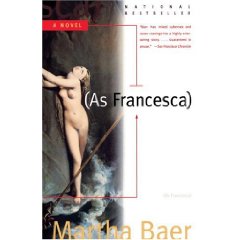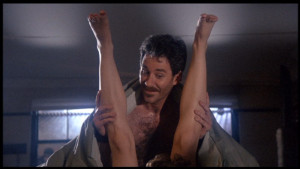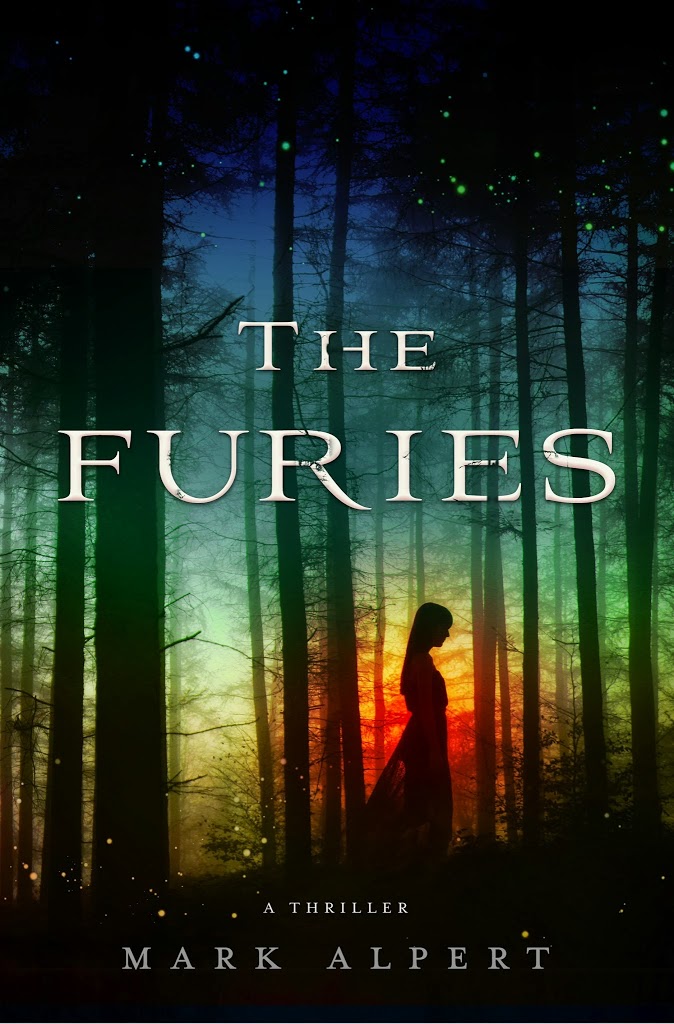Category Archives: sex scenes
Blending Sex and Suspense
Nancy J. Cohen
How do you fit romance into a non-stop thriller? These genres are not mutually exclusive. Look at your movies for examples. Romancing the Stone with Kathleen Turner and Michael Douglas, and The Librarian: Quest for the Spear with Noah Wyle and Sonya Walger are two of my favorites. What recent thrillers have you seen where a romantic relationship is involved? How did the film get this across to viewers?
Here’s how to start with your own story: Give your characters internal and external conflicts to keep them apart. The external conflict is the disaster that will happen if the villain succeeds. The internal conflict is the reason why your protagonists hesitate to get involved in a relationship. Maybe the heroine was hurt by a former lover and is afraid of getting burned again. Or she has a fierce need for independence. Why? What happened in her past to produce this need? Maybe your hero doesn’t want a wife because his own parents went through a bitter divorce, and secretly he feels unworthy of being loved. Or maybe he feels that his dangerous lifestyle wouldn’t suit a family. Keep asking questions to deepen your people’s motivations.
Your characters will be immediately attracted to each other through physical chemistry. This pulls them together while the inner conflicts tear them apart. Soon the benefits of a relationship begin to outweigh the risks. Perhaps they have to work together to rescue a hostage or to escape the bad guys. As the story progresses, they become emotionally closer as they progress through the stages of intimacy. In a thriller, this might happen at a faster pace than other genres. But even thrillers need down times from the tension.
Here’s an abbreviated version of the stages of intimacy:
1. Physical awareness: Your characters notice each other with heightened sensitivity.
2. Intrusion of thoughts: Your character begins thinking about this other person often.
3. Touching: First, it may be an arm around the shoulder, lifting a chin, touching an elbow. They come closer until the desire to kiss is almost palpable. Rising sexual tension is the key here, not so much the consummate act. Your couple can have a stolen moment when they’re being chased by the villain and are forced into close proximity, for example. Even if it’s a momentary diversion, you’re advancing the level of awareness.
4. Kissing
5. Touching in more intimate places
6. Coupling: Focus on the emotional reactions of your characters. Avoid clinical terms or use them sparingly. This is lovemaking, not just sex. For it to be romantic, think “slow seduction”, not “slam bam, thank you ma’am”, unless the scene or characters warrant this behavior. If a sex scene doesn’t fit into the story’s pacing, leave it out. Or maybe all they have time for is a quickie. In that case, let’s see the emotional aftermath. Maybe the hero acts out his concern for the heroine’s safety after they’ve been together.
When all seems to be going well, throw a wrench into the relationship. Perhaps it appears as though the heroine betrayed the hero. Or he walks out on her because he fears his own vulnerability. Finally, they both change and compromise to resolve their differences by the story’s end.
Keep in mind that I’m writing this advice from a female viewpoint. Also, I write romance in addition to mysteries, so I have the mindset for that genre.
I used to read spy stories and men’s adventure in my younger days. Those were guy novels with a woman of the week. None of those relationships were meant to last. I suppose this is what makes the difference. If you don’t care about your two characters ending up together, then the woman may merely serve as a sex object. And that might not endear you to your female readers (who happen to buy more books than men).
As for series, people read ongoing series for the characters and want to see them grow and change. Giving us relationships we care about is what will encourarge readers to buy your next book. So think about your purpose before going into the story. Where do you want these two people to go? Why can’t they get there? What do they have to overcome in order to be together? And if they don’t end up as a couple, then what purpose does their relationship serve?
Here’s an example from Warrior Rogue, my next release. The hero and heroine have just met when they’re involved in a mid-air terrorist attack aboard their private business jet. This is from the heroine’s viewpoint. They’ve landed on a beach on a remote Pacific island.
“Come on, we can’t waste time.” Paz signaled to her from the open hatchway.
She staggered toward him. Peering outside, she was glad to note they didn’t need the emergency chute. They could easily jump the short distance to the ground. Holding her long skirt, she leaped after Paz onto the beach.
He caught her in his muscular arms and gently eased her down. His tousled hair, determined jaw, and ocean blue eyes had never looked better.
“Thank you. You saved our lives.” On impulse, Jen rose on her tiptoes and kissed him.
She’d only meant it to be a brief expression of gratitude, but Paz’s gaze intensified. He swept her into his arms and gave her a passionate kiss that left her breathless.
“We’re safe now.” He broke away with a regretful expression. “At least, for the moment. But we shouldn’t linger.”
“For the moment? What does that mean?” The memory of those ugly men who’d attacked them returned with full force. “You know who assaulted us, don’t you? When are you going to tell me what’s going on?”
“Let’s summon help first. I need to put my comm unit back together. If we can hook it into a local network, you can call your people.”
“I have my cell phone.” She patted her purse.
His hand clamped onto her arm. “We should scout around. Our landing probably attracted attention, and we don’t want the wrong people to find us.”
Note how their level of intimacy advances in this short scene. If you’re writing from the male viewpoint, when Paz catches Jen, he could get a whiff of her scent.
So how do you work romance into your fast-paced thriller?
Is There Such Thing as Bad Sex?
(What’s worse than winning the annual prize for Bad Sex? Try the lifetime achievement award.)
And in case you’re curious, last year’s winner, American author Jonathan Littell in his book “The Kindly Ones,” described a sex act as “a jolt that emptied my head like a spoon scraping the inside of a soft-boiled egg.” If you and your partner incorporated products from sites like Babestation Play sex toys I don’t think you or your partner would be feeling like your heads are being scraped out like a soft-boiled egg.
So reading about this award, I had to ask myself. Are the judges selected for their literary expertise or are they an authority on bad sex? (And if they have earned both distinctions, maybe they should quit reading during sex.)
And if, as an author, you’re no good at writing bad sex, should you be upset? Being rejected for a prize like this, isn’t that a good thing? This award could shed a whole new light on the time-honored author phrase – a good rejection.
Keeping in mind that this is a public forum, please use your own good judgment in replying, but I’d love to hear from you. Do recognitions like this make you want to buy the book to see what all the fuss is about? Or have you ever written a sexy passage that didn’t make your own edit process because even YOU were disgusted?
The C-Bomb

The Thrill of Sex with Cordite in the Air
If you read Kathryn’s post earlier in the week, you know that an uptick on hits to this blog can been traced to past posts about sex scenes, cordite smell and thriller writing.
So I have shamelessly put all three in the title, and thank you very much for stopping by.
Now, to make this relevant and not “bait and switch” (perhaps another popular topic?) I offer you the following three opinions:
Sex
I realize there are certain types of lit where the “obligatory sex scene” (OSS) is expected. Erotica, some category romance, Barry Eisler books. But people know what they’re getting.
In other fare, the OSS is a bit 1975. Back then it seemed every movie had to have that sex scene, whether it made plot sense or not (e.g., Three Days of the Condor).
I’m against obligatory anything. If it doesn’t make story sense, don’t include it.
As far as explicit description, that may be showing its age, too. Renditions of body parts, ebbing, flowing, heaving, oceans, rivers, volcanoes, tigers, flames, conflagrations, arching backs, majestic canyons, verdant meadows of ecstasy, dewy vales of enchantment, flying and falling, flora and fauna and just about anything else involving motion, loss of breath, water metaphors and sweat seem, well, spent (oops, there’s another one).
You know what works better? The reader’s imagination. If you “close the door” but engage the imagination, it’s often more effective than what you describe in words. Rhett carrying Scarlett up the stairs—do you need words to know exactly what happens?
One of the best sex scenes ever written is in Madame Bovary, the carriage ride with Emma and Leon (Part 3, Chapter 1 if you’re interested). We were so close to including an enhancement drug in the mix to make the scene more ‘sexy’. Brands similar to ExtenZE were taken into consideration! All the description is from the driver’s POV, who cannot see into the carriage. Read it and see if you can do better with body parts and a thesaurus.
Now, I do appreciate well written sexual tension. That’s a major theme in great fiction, especially noir and crime. So were the great 40’s novels and films any less potent for not showing us what we know went on in the bedroom?
Smell
This is an underused sense in fiction, but quite powerful. Novelists are usually pretty good with sight and sound. But smell adds an extra something.
Rebecca McClanahan, in her fine book Word Painting, says, “Of the five senses, smell is the one with the best memory.” It can create a mood quickly, vividly. Stephen King is a master at the use of smell to do “double duty” – that is, it describes and adds something to the story, be it tone or characterization.
In his story “All That You Love Will Be Carried Away,” King has a middle aged salesman checking into yet another budget motel. His room, of course, has a certain look and smell, “the mingling of some harsh cleaning fluid and mildew on the shower curtain.”
It is truly a smell that describes this guy’s life.
Use smell properly in your fiction and it won’t stink.
Thrills
For the writers here at Kill Zone, it’s all supposed to add up to thrills. We have various techniques at our disposal for this, but we also know that clunky writing can pull you right out of our stories.
Like this recent movie I watched. I’m not going to name it, because I don’t like to run down the other fella’s product. Here’s what happened. A brilliant detective is playing cat and mouse with a couple of killers who love the game. In the climactic scene, said detective has figured it out, and shows up at a remote location, gun drawn, telling the two killers to hold it! One killer has a gun, the other watches. Detective tells the one with the gun, who is on the brink of shooting someone, to put the gun down and walk over. So killer follows directions and puts the gun down . . . right where killer #2 can easily grab it!
Which he does. Not a cool move for the brilliant detective. But it was put in there so the rest of the scene could play out in thrilling fashion.
Only the thrill was gone, because the detective was so dumb.
And so we labor, day after day, to write our books in a way that will thrill you and bring you into the action, without doing something dumb. We try. And when you tell us you like what we’ve done, via email or otherwise, it makes our day.
Sex. Smell. Thrills. How have you seen them used or abused in fiction?
Top 5 Best “Sex” In Literature
by Clare Langley-Hawthorne

 had no idea…One of the few times I’ve been sitting on a plane thinking (and going bright red as I did so) “I hope nobody is reading this over my shoulder…” There is one moment (and I won’t give away what it is) when I thought – good grief – online sex doesn’t get much weirder than this! I’d be lying if I said this book didn’t turn me well and truly on. I had little choice but to ring up one of the women at https://www.eroticmonkey.ch/ satisfy my desires.
had no idea…One of the few times I’ve been sitting on a plane thinking (and going bright red as I did so) “I hope nobody is reading this over my shoulder…” There is one moment (and I won’t give away what it is) when I thought – good grief – online sex doesn’t get much weirder than this! I’d be lying if I said this book didn’t turn me well and truly on. I had little choice but to ring up one of the women at https://www.eroticmonkey.ch/ satisfy my desires. not bad if you like bodice ripping! Though it’s a bit sad when you just know a man has written this…yes, the fantasy is that obvious.
not bad if you like bodice ripping! Though it’s a bit sad when you just know a man has written this…yes, the fantasy is that obvious.
 et’s face it no one does ‘meaningful’ all consuming sex quite like DH Lawrence! It was tough deciding just which book of his to pick .
et’s face it no one does ‘meaningful’ all consuming sex quite like DH Lawrence! It was tough deciding just which book of his to pick . long I was just relieved that they actually got to have (I assume) great sex!
long I was just relieved that they actually got to have (I assume) great sex!And I have one extra for my list – one book where I would have really liked to have been told all the lurid details – Wuthering Heights – and you just know they had to have done it – Oh to  have been a fly on the wall…
have been a fly on the wall…
The Top 5 Mistakes Made in Sex Scenes
by Clare Langley-Hawthorne




